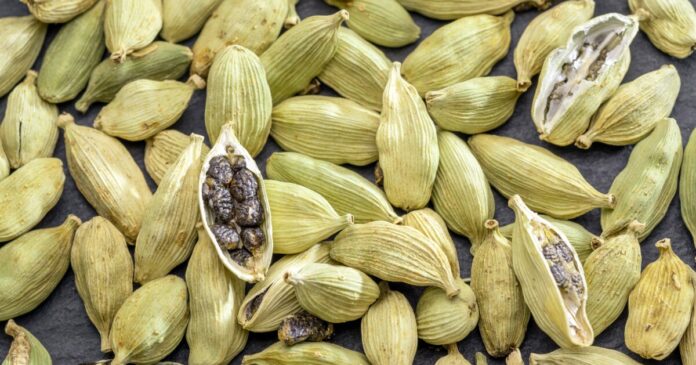A humble kitchen spice could pack a powerful antiviral punch. Researchers have found that compounds in cardamom seeds can trigger the body’s virus-detecting systems, potentially paving the way for natural cold and flu treatments.
Type I interferons (IFNs) are proteins that act like the body’s “first responders” when a virus, such as influenza, attacks. After binding to receptors on infected and uninfected cells, they signal the cells to produce hundreds of interferon-stimulated genes (ISGs), which induce an “antiviral state” that limits viral replication.
In a new study led by researchers at Shinshu University in Japan, an extract from the humble cardamom seed was evaluated for its ability to enhance the production of type I IFNs and, therefore, act as an antiviral agent.
“We have been researching food ingredients that can prevent viral infections in our daily life since before the emergence of the novel coronavirus,” said co-corresponding author, Takeshi Kawahara, an Associate Professor at the University’s School of Science and Technology. “The pandemic has increased society’s focus on the antiviral properties of food, which has led to more opportunities for us to engage in this research.”
The researchers used human lung epithelial cells, which line the respiratory tract and serve as a defense against inhaled pathogens and particles. These cells are commonly used as models for studying respiratory viruses such as colds and flu. The team prepared a hot-water extract of cardamom seeds (CSWE) and identified its chemical components using gas and liquid chromatography, confirming that 1,8-cineole was a major compound. (1,8-cineole, also known as eucalyptol, has anti-inflammatory, antioxidant, antimicrobial, and analgesic properties and is used in traditional medicine.)
The researchers treated the lung cells with CSWE and its main compound, 1,8-cineole, then exposed them to molecules that mimic viral DNA and RNA, to simulate an infection. They found that CSWE significantly increased IFN-⍺ and IFN-β, both important antiviral molecules. It also enhanced the expression of ISGs, helping cells to block viral replication. This enhancement occurred whether the viral mimic was DNA or RNA, meaning that CSWE activated multiple immune pathways. This suggests it could help defend against different types of viruses. CSWE’s major compound, 1,8-cineole, also boosted IFN and ISG levels in a dose-dependent way. It worked even without simulated infection, suggesting it may help keep cells in a mild state of readiness.
The two used different mechanisms of action. The extract’s effect relied on the STING pathway, a built-in “virus sensor” system inside our cells that detects stray bits of viral DNA and tells the cell to produce IFNs. The compound 1,8-cineole, however, boosted IFN in a different way, by turning off a gene (TIPARP) that normally slows down this immune response. In other words, it lifted a natural “brake” on the immune system. Importantly, the extract didn’t activate pathways that cause swelling or tissue damage, meaning it could strengthen antiviral defense without causing harmful inflammation.
The study’s limitations include the fact all experiments were done in lab-grown cells, not animals or humans. Also, the concentrations used might be much higher than what’s reached by eating or drinking cardamom. And, the study was funded by S&B Foods Inc., which also supplied the cardamom.
However, if future studies confirm these effects in humans, cardamom extract or 1,8-cineole might be developed as a natural immune booster to help prevent viral infections, or a supportive therapy alongside vaccines or antiviral drugs.
“Cardamom has historically been widely used as a spice with medicinal properties, but based on these findings, it is expected that it can be utilized as an antiviral material to prevent a wide range of viral infections,” Kawahara said. “We hope that this research will provide a new perspective on the antiviral properties of food and create an opportunity to focus attention on a wider range of food ingredients that can help prevent viral infections in daily life.”
For now, though, it’s early research – not medical advice. Cardamom tea alone won’t replace vaccines or antiviral medicines.
The study was published in the journal Foods.
Source: Shinshu University


